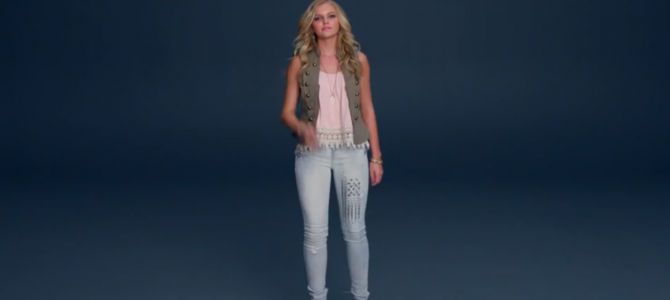1) Nissan “With Dad”
This ad was the first really bad one to air. It’s about a father missing all of his child’s milestones because he was at work (as a race car driver) and then showing up at the end in a shiny red car as if this makes up for it. To make matters worse, the ad used Harry Chapin’s “Cat in the Cradle,” as the music. That’s a song about how fathers too busy to be with their sons end up having sons too busy to spend time with their fathers. It’s horribly depressing.
If one assumes that Nissan has a goal of selling automobiles with this ad, one must assume that the ad executives thought they were portraying this absentee father sympathetically. And with 24 million children in America living in homes without fathers, this isn’t a great idea. The Nissan child wouldn’t even qualify as a child living in a home without a father, he just has a father too busy to spend time with him. But father absence plays a significant role in poverty, emotional and behavioral problems, infant mortality, incarceration, crime, teen pregnancy, child abuse, sexual abuse, alcohol and substance abuse, and educational lags. Showing up one day with a new red car isn’t really a solution to all of these problems.
"Hey, Son. I know I caused you and your mother heartache and loneliness. But I just picked you up in a new Maxima. So, you know, it's cool."
— Victor Paul Alvarez (@vpaulalvarez) February 2, 2015
The worst part of the ad? He doesn’t even let his son drive. Worst car ad ever.
2) Nationwide “Make Safe Happen”
Easily the worst of the Superbowl ads was Nationwide insurance’s ad about how your kid is going to die and it will be your fault and so you should buy insurance for when that happens. It’s just as bad as it sounds. A kid starts talking about how he won’t ever learn to ride a bike, kiss a girl or fly because he will be killed. And then it goes to the tub where he drowns. And the sink where he swallows a bunch of poison.
What’s the problem? Insurance is all about the fact that bad things happen in life, right?
Sure. But the tagline of the commercial is “Make Safe Happen” and Julia Roberts, I believe, says “Together we can make safe happen.” This is not true. We will never be safe and we need to understand that. Parents, in particular, need to grasp this. They are trying so hard to keep anything bad from happening to their kids that they’re willing to sacrifice any amount of childhood to obtain it. The very worst thing that could happen is for parents to become more obsessively concerned about keeping their kids safe from all risk. As one parent joked:
Let me know if anything good happens – going to wrap my toddler in bubble wrap. Thanks a lot Nationwide!
— Josh Jordan (@NumbersMuncher) February 2, 2015
This helicopter parenting mentality is what causes Child Protective Services to be called when fully functioning children walk a short distance home from the park. This is what leads neighbors to fret over children mowing lawns. This is why playgrounds have become boring and why young adults know next to nothing about proper decision-making and calculation of risk.
This ad is everything that’s wrong with childhood in America. Although it did lead to some funny tweeting:
So sad. #SuperBowlXLIX #nationwidecommercial pic.twitter.com/Z3Y54ph2i8
— Ray Wert (@raywert) February 2, 2015
The @nationwide execs must be freaking out at Katy Perry being lifted up on that rig.
#Danger
— Drew McCoy (@DrewMTips) February 2, 2015
The next Nationwide ad, basically pic.twitter.com/Iwnr0u8286
— Matt O'Brien (@ObsoleteDogma) February 2, 2015
3) Always “Like A Girl”
This is an old ad for menstruation products. I first saw it months ago so the moment it started, I turned the channel. Why? I have two young daughters, one of whom was watching the game with me at that moment. The ad uses feminism to sell its product. What that means — and this is a very common trope with beauty products or women’s products — is that they introduce sexist concepts in order to debunk them. I didn’t want my young daughter to become insecure so I had to keep the supposedly feminist ad from poisoning her.
As for the ad itself, it seems totally manufactured. It features actors who are adults being told to “act like a girl” and they act goofy. They throw balls poorly, etc. Then it asks actors who are little girls to do the same and they act very serious and throw the balls really well.
The stereotype about girls being bad at throwing things is introduced, but it’s supposedly OK because the corporation is actually against these stereotypes. So obviously you should go buy their product. But wouldn’t it be better to just not use crude stereotyping imagery in advertisements just so one company can profit?
UPDATE: Reader Mike Armstrong notes:
My step daughter is in the original “Like a Girl” ad and I can assure you she is not an actor. Nor, to my knowledge, are any of the other girls they hired. They were recruiting them from schools here in LA last spring.
I have some mixed feelings about the campaign, but I think some of the critics are missing the point. And I would tell you to check out my stepdaughter’s segment to see that point articulated quite well (IMHO). My step daughter is Zoe, the golfer. I hope you’ll take a second look at it, if for no other reason, than to see a really great swing by a 13 year-old girl who’s only been golfing for two years.
UPDATE 2: Another email says the campaign used actors and non-actors. FWIW.









